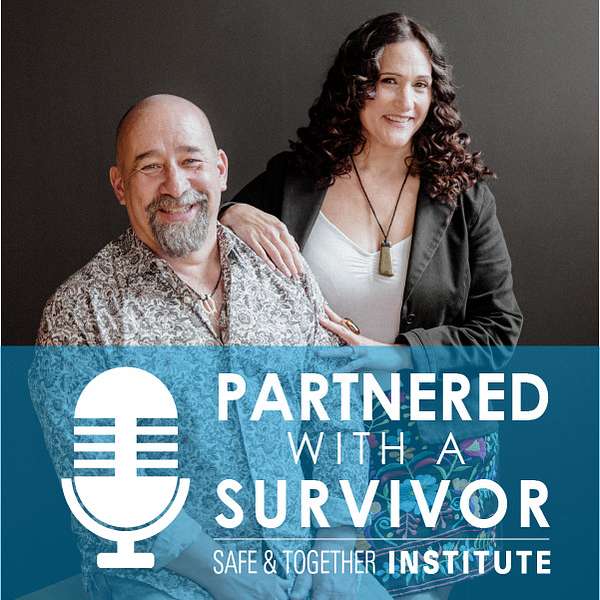
Partnered with a Survivor: David Mandel and Ruth Reymundo Mandel
This podcast is a series of conversations.
What started as a series of intimate conversations between Ruth and David that ranged from personal to professional experiences around violence, relationships, abuse, and system and professional responses which harm, not help, has now become a global conversation about systems and culture change. In many episodes, David and Ruth are joined by a global leader in different areas like child safety, men and masculinity, and, of course, partnering with survivors. Each episode is a deep dive into complex topics like how systems fail domestic abuse survivors and their children, societal views of masculinity and violence, and how intersectionalities such as cultural beliefs, religious beliefs, and unique vulnerabilities impact how we respond to abuse and violence. These far-ranging discussions offer an insider look into how we navigate the world together as professionals, as parents, and as partners. During these podcasts, David and Ruth challenge the notions which keep all of us from moving forward collectively as systems, as cultures, and as families into safety, nurturance, and healing.
We hope you join us.
Have an idea for a podcast? Tell about it here: https://share.hsforms.com/1l329DGB1TH6AFndCFfB7aA3a1w1
Partnered with a Survivor: David Mandel and Ruth Reymundo Mandel
Season 3 Episode 8: Understanding Reproductive Coercion: An Interview with Dr. Heather McCauley
In this episode, David and Ruth interview Dr. Heather McCauley from the Consortium on Gender-Based Violence at Michigan State University. Dr. McCauley discusses the newest research on reproductive coercion and the correlations to intimate partner violence, unwanted pregnancy, STIs, and health issues.
Ruth, David, and Dr. McCauley address:
- How important it is to identify common acts of resistance to reproductive coercion so we accurately assess survivors’ protective and safety strategies
- How resistance to reproductive coercion often elicits violence, as does any form of resistance to a perpetrator of intimate partner violence
- How a lack of professional awareness of the patterns and strategies of reproductive coercion is a danger to survivors and their safety and well-being
- How reproductive coercion is much like the wartime strategy of rape to enforce compliance, frighten, and control
- The need for men to be part of the discussion around consent, family planning, reproductive health, and the need for further engagement and accountability for perpetrators
With some governments moving to remove reproductive rights, bodily self-determination, and access to abortion and birth control, it is vital to have a discussion of what reproductive coercion is, how it most often manifests as behaviors, and what the impact is for survivors. Diving down into how reproductive coercion is supported by our societal attitudes, laws, and institutional practices is key to addressing the systemic nature of reproductive coercion.
The podcast also includes positive statements on the dignity and autonomy of women and addresses the prevalence of attitudes that support and normalize reproductive coercion.
Now available! Mapping the Perpetrator’s Pattern: A Practitioner’s Tool for Improving Assessment, Intervention, and Outcomes The web-based Perpetrator Pattern Mapping Tool is a virtual practice tool for improving assessment, intervention, and outcomes through a perpetrator pattern-based approach. The tool allows practitioners to apply the Model’s critical concepts and principles to their current case load in real
Check out David Mandel's new book Stop Blaming Mothers and Ignoring Fathers: How to Transform the Way We Keep Children Safe from Domestic Violence.
Visit the Safe & Together Institute website.
Start taking Safe & Together Institute courses.
Check out Safe & Together Institute upcoming events.